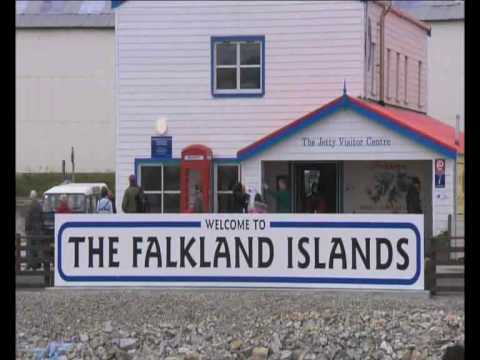
Nestled in the South Atlantic Ocean, the Falkland Islands emerge as a fascinating locus of wildlife, history, and geopolitical intrigue. Comprised of two main islands, East Falkland and West Falkland, along with around 776 smaller islands, this British Overseas Territory covers an area of approximately 4,700 square miles. Despite its remote location some 300 miles from the coast of South America and its population of about 3,400 people, the Falklands attract attention far disproportionate to their size due to their rich biodiversity and significant historical events.
#### Natural Splendor and Wildlife
One of the most compelling reasons to explore the Falkland Islands is its extraordinary wildlife. The archipelago is a haven for bird watchers and nature enthusiasts alike. It hosts a large variety of bird species including five species of penguin along with albatrosses and other seabirds. The islands are also home to marine mammals such as elephant seals and sea lions.
The landscape itself varies remarkably across the islands from rugged cliffs and broad sandy beaches to mountainous terrain at Mount Usborne. Peat bogs and heathlands are common sights here too. This kind of environment offers an unspoiled backdrop for numerous outdoor activities like hiking, fishing, and kayaking.
#### Historical Significance
The history of the Falkland Islands is shaped by centuries of disputed claims by France, Spain, Britain, and Argentina. Established as a British colony in 1840 after various periods of French and Spanish control during the 18th century, Argentina maintains a claim on what it calls ‘Las Malvinas.’ This dispute culminated in the short but intense Falklands War in 1982 when Argentina invaded the islands only to be defeated by British forces.
Today peace prevails on these islands yet they remain an important focal point in sovereignty discussions between Britain and Argentina; talks that occasionally ripple through international diplomatic channels.
#### Economy
Traditionally reliant on sheep farming which was introduced in the 19th century, today’s Falkland economy has diversified significantly. Squid fishing has become particularly lucrative due to substantial populations inhabiting surrounding waters annually coupled with responsible fisheries management ensuring sustainable practices are adhered to.
Tourism also plays an increasingly vital role in local economic health driven by wildlife viewing opportunities especially penguins during breeding season. Moreover geological surveys suggest potential oil reserves nearby which might impact future economic landscapes though exploration remains contentious given environmental concerns plus geopolitical ramifications.
#### Culture & Community
Despite its small size community life on the island is vibrant with a mix between traditional British culture deeply intertwined with unique local customs evolved over generations living so removed geographically from other lands yet closely connected through technology today like Internet access available island-wide facilitating global interactions.
Education services extend through secondary school supported predominantly via public funding while specialized tertiary education or vocational training often involves traveling overseas primarily to UK institutions reflecting historical ties.
Healthcare follows similar frameworks offering comprehensive care using both public funds supplemented by private insurance schemes where necessary ensuring residents receive adequate medical services regardless geographical remoteness further backed by military support if required under extraordinary circumstances exemplified during past conflicts illustrating complex interdependencies between local governance military presence plus civilian life on these isolated islands.
#### Conclusion
The Falkland Islands offer more than meets eye whether one seeks solace amid untouched natural beauty or delves into layers upon layers history stretched across battlefields diplomatic tables alike they stand testimony resilience adaptability human spirit thriving edge world against odds frequently dictated externally yet faced internally collective fortitude unparalleled anywhere else planet truly making them jewel South Atlantic worthy admiration exploration lasting curiosity.
